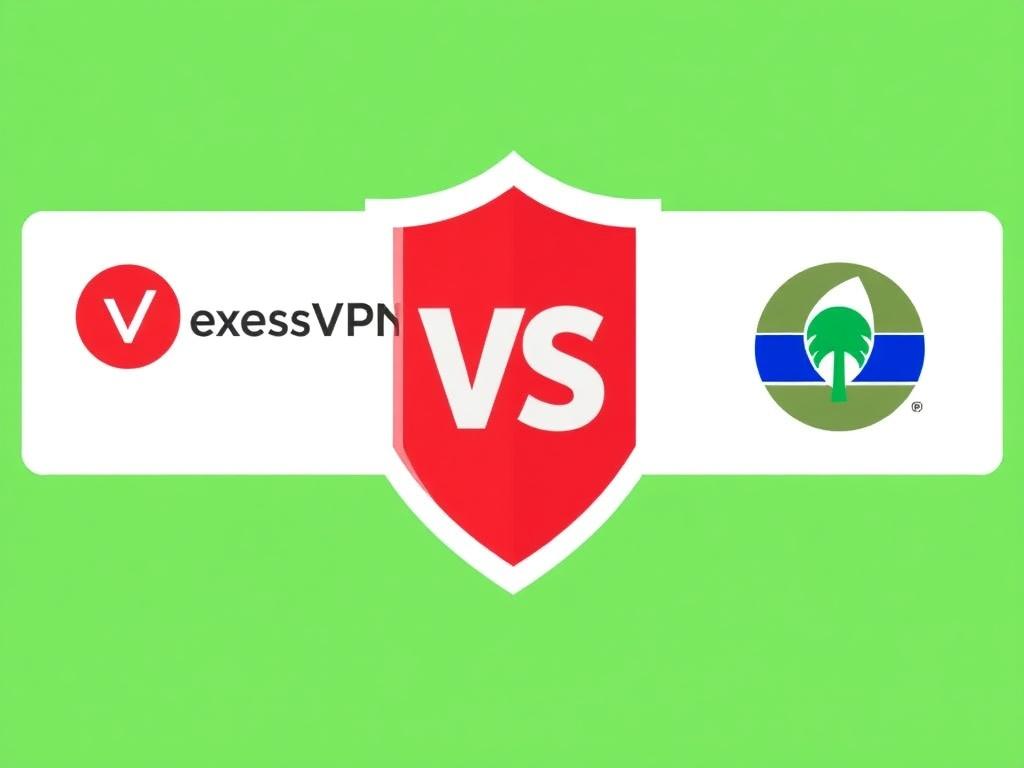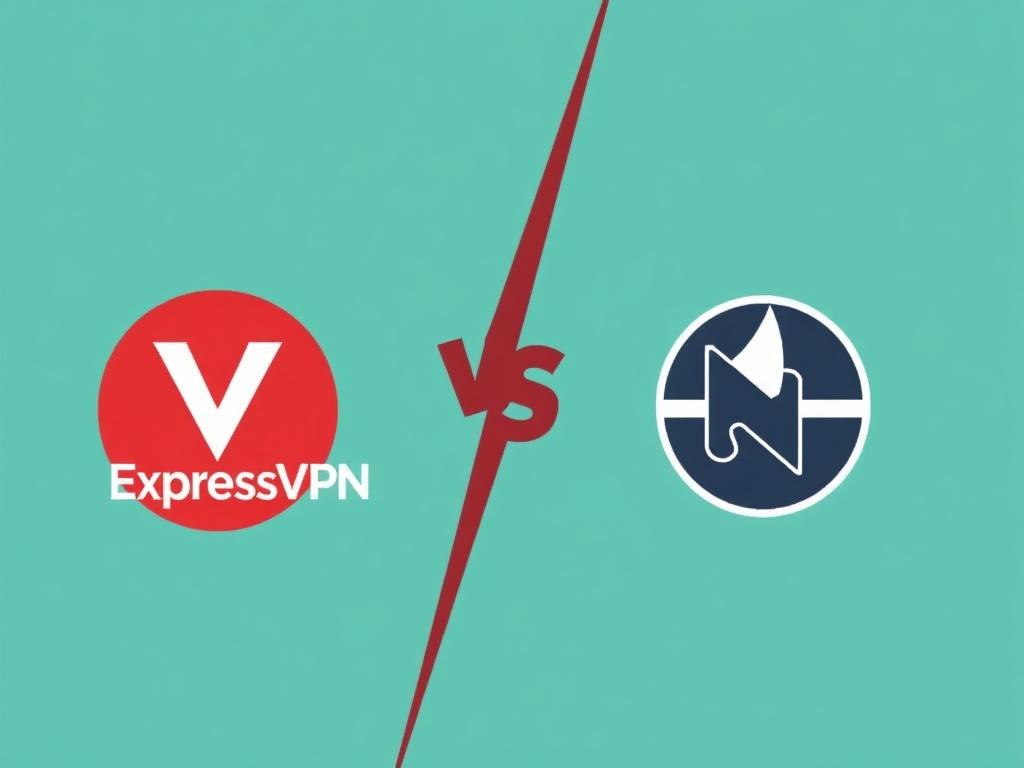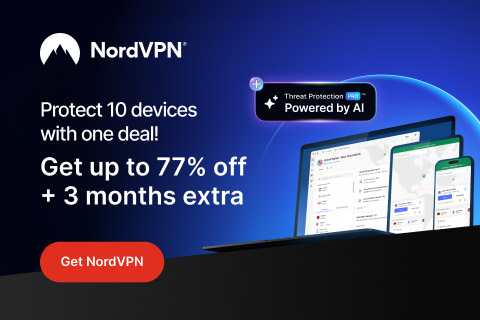Stay Private. Stay Secure. Stay Free.
Trusted by millions worldwide – protect your online life with #1 VPN
- ⚡ Blazing-fast speed on every server
- 🔒 Military-grade encryption & protection
- 🌍 Access content globally without limits
- 📱 Up to 10 devices with one account
In the crowded world of virtual private networks, two names consistently rise to the top: ExpressVPN and NordVPN. If you’re dipping your toes into the world of online privacy, you’ve likely seen their banners, banners that promise fast speeds, ironclad security, and access to streaming libraries from around the globe. But with so many claims flying around, how do you decide which one actually fits your needs? This article aims to be your friendly, no-nonsense guide to compare expressvpn to nordvpn, offering clear comparisons, real-world insights, and practical considerations to help you choose between these two giants. We’ll cover everything from speed and security to pricing, user experience, streaming capabilities, and beyond. By the end, you’ll have a well-rounded view of how these services stack up in a real-world setting and what you might gain or lose by choosing one over the other. Throughout this piece, you’ll see key phrases woven naturally into the discussion so you can search or skim and still grasp the main ideas: compare expressvpn to nordvpn, nordvpn vs expressvpn comparison, expressvpn or nordvpn, nordvpn and expressvpn review, expressvpn vs nordvpn reddit.
What These Services Are and Why They Matter
To begin, it helps to level-set what a VPN actually does and why people invest in one to begin with. At its core, a VPN creates an encrypted tunnel between your device and a remote server, shielding your online traffic from prying eyes—whether you’re on public Wi-Fi, in a restrictive network, or simply trying to keep your browsing private from potential data collection by advertisers. ExpressVPN and NordVPN are both premium players in this space, built to offer robust encryption, broad server networks, user-friendly apps, and additional features designed to boost privacy and convenience. When you start to compare expressvpn to nordvpn, you’ll notice overlaps in their mission: protect your data, give you control over your online footprint, and enable you to access content that might be geographically restricted. But the nuances—how they approach security, what devices they support, how easy their apps are to use, and how much they cost—can and should sway your final decision. It’s never merely a race to see who has more servers; it’s about how those servers perform in the contexts you care about most: streaming, gaming, remote work, research, or just general privacy.
What to look for in a VPN

- Security and privacy practices: encryption standards, leak protection, no-logs commitments, and jurisdiction.
- Performance: speed, ping stability, and consistency across locations.
- Content access: ability to bypass geo-restrictions for streaming services and media libraries.
- Device support and ease of use: cross-platform apps, browser extensions, and simultaneous connections.
- Reliability and support: customer service quality, quick responses, and helpful documentation.
- Pricing and value: long-term plans, discounts, and refund policies.
Speed, Performance, and How Location Affects Your Experience
Speed is often the first practical concern people have when looking at compare expressvpn to nordvpn. This isn’t just about raw numbers; it’s about how those numbers translate into real-world experience—buffer-free streaming, quick page loads, and reliable connections when you’re on the move or traveling. Both ExpressVPN and NordVPN market themselves as fast, reliable options, and both maintain large networks of servers around the world to minimize distance and latency. In real-world testing, you’ll frequently see that both providers offer excellent speeds on optimized servers, with differences usually tied to your baseline connection, time of day, and the specific server you pick. If you’re evaluating nordvpn vs expressvpn, you’ll want to pay attention to a few practical factors:
– Server proximity and load: A close, lightly loaded server will outperform a distant, congested one. Both providers give you the option to pick specific regions, and both offer automated routing for optimal performance.
– Protocol choices: ExpressVPN’s Lightway protocol is designed for speed and reliability, while NordVPN offers WireGuard-based NordLynx as a fast, efficient option. The choice of protocol can have a meaningful impact on throughput and latency.
– Streaming and gaming performance: For most everyday tasks, both VPNs handle HD streaming, conference calls, and light gaming with little perceptible lag. If you’re a gamer or a streamer who needs ultra-low latency, you may want to test a few servers to find the best balance between speed and stability.
To illustrate how these differences play out, consider a simplified comparison of typical user experiences:
| Aspect | ExpressVPN | NordVPN |
|---|---|---|
| Commonly recommended protocol | Lightway | NordLynx (WireGuard-based) |
| Streaming performance | Consistently strong; good for 4K streaming on many servers | Excellent on many servers; flexible for libraries with regional restrictions |
| Gaming latency | Low to moderate; depends on server choice | Typically strong; some users report very low latency with NordLynx |
| Typical speed impact | Light to moderate decrease on optimized servers | Moderate decrease; fast protocol options help |
Real-world testing notes
When you read nordvpn vs expressvpn comparison reports, you’ll see that results vary by test methodology and location. A key takeaway is that both providers invest heavily in their network infrastructure and protocols to minimize performance bottlenecks. If you live in a region with strong internet infrastructure, you’ll probably notice only a small difference between the two on most everyday tasks. If you’re in a location with restricted access or high network variability, the difference can be more pronounced, especially when choosing a server far from your actual location. Importantly, both services offer guidance on testing multiple servers and using different protocols to fine-tune your speed. If you’re curious about Reddit discussions, you’ll sometimes see a mix of anecdotes and measured tests. In short, for the average user, expressvpn vs nordvpn tends to come down to personal location, server choice, and protocol preference, rather than a single universal winner in the speed department.
Security, Privacy, and Trust: What Each VPN Keeps Private
Security and privacy are the core reasons people choose to use a VPN in the first place. Both ExpressVPN and NordVPN promote strong security architectures, but their approaches to privacy policies, jurisdiction, and threat models differ in meaningful ways. A thoughtful, step-by-step comparison helps you understand potential risk exposure and how each service handles data.
Encryption and features
Both providers use strong encryption (typically AES-256) and robust authentication methods, along with kill-switch functionality to prevent data leaks if a VPN connection drops. They also offer DNS leak protection to safeguard against inadvertent exposure of your real IP address. In addition, ExpressVPN emphasizes its trusted server model and regular independent audits, while NordVPN highlights its security-focused features such as multi-hop servers and Double VPN in certain configurations. The practical takeaway is that both services provide solid core encryption and leak protection, with feature nuances that may appeal to different user goals.
Privacy practices and logging
Privacy is often the largest point of differentiation. ExpressVPN promotes a strict no-logs policy that is designed to minimize recordable data, backed by third-party audits and a jurisdiction in the British Virgin Islands, which some users find favorable due to less stringent data retention requirements. NordVPN, headquartered in Panama, also emphasizes a strict no-logs stance and has undergone independent audits. When you read nordvpn and expressvpn review summaries, you’ll see both praised for privacy posture and transparency, with occasional critiques centered on how quickly a vendor updates its practices in response to new privacy concerns. The bottom line is that both services prioritize privacy, but the exact legal framework and regional requirements you operate under can sway how comfortable you feel with each provider’s policy.
Threat models and extra layers
Beyond the basics, both providers offer features designed to reduce exposure to modern cyber threats. Double VPN, obfuscated servers, and specialized leak protection modes exist in various forms across their platforms. If you routinely handle sensitive data, or operate in high-risk environments, you may want to experiment with these advanced configurations to see which setup offers the best balance of security and performance for your use case.
Lockdowns, Bypassing Censorship, and Streaming Capabilities
For many users, the ability to access content and search freely online is a decisive factor. In this area, both ExpressVPN and NordVPN have built reputations as reliable tools for bypassing geo-blocks and censorship. The reality is that content providers and networks continuously update their defenses, so the effectiveness of any VPN at bypassing blocks can fluctuate over time.
Streaming libraries and geo-access
Both services advertise broad access to streaming libraries and the ability to unblock services like Netflix, Hulu, Amazon Prime Video, and regional catalogs. In practice, users report a mix of success stories and occasional hiccups across both platforms. A helpful strategy is to test specific streaming services you care about on a few servers and keep notes on which servers consistently unlock the content you want. If you’re choosing between expressvpn vs nordvpn for streaming, you’ll want to consider your target catalog, region, and how frequently you switch libraries. Some people find ExpressVPN’s streaming performance to be exceptionally stable, while others prefer NordVPN’s broad server choices for library variety. It’s not unusual to see “nordvpn vs expressvpn comparison” discussions focus on streaming, with both brands delivering solid results but excelling on different fronts depending on the platform and library.
Bypassing censorship and access in restrictive regions
In environments with aggressive censorship or network filtering, obfuscated servers and privacy-enhancing features can be critical. Both providers offer settings designed to improve resilience in these contexts. ExpressVPN’s obfuscated servers and integration with certain privacy-focused protocols can help users circumvent deep packet inspection. NordVPN also offers obfuscation and related features with a focus on stealth in restrictive networks. If you live in or travel to places where internet usage is constrained, you’ll want to try these features in practice, as the real-world effectiveness depends on your network, device, and local restrictions.
Server Network and Reliability
A key practical metric is the size and reliability of the server network. Both providers boast large, globally distributed networks with thousands of servers across dozens of countries. A larger server network tends to mean shorter average distances and more options for load balancing. However, sheer counts don’t tell the full story; reliability, performance consistency, and server maintenance are equally important. When you’re choosing between expressvpn or nordvpn for daily use, these factors matter.
Server distribution and diversity
ExpressVPN emphasizes a smaller-but-carefully-curated global network with a focus on consistently performing servers in premium locations. NordVPN leans into a broader network with a wider spread of countries and more server counts in several regions. For users who enjoy trying different servers, NordVPN’s abundance can be a big plus; for those who prefer predictable performance on highly tested locations, ExpressVPN’s approach may feel calmer and more reliable. The choice can come down to how you value breadth versus predictability.
Server performance variability
In practice, you may notice that some NordVPN servers are extremely fast in certain regions, while others are slower, depending on regional traffic and maintenance windows. The same dynamic can appear with ExpressVPN, though the curated approach sometimes yields fewer dramatic swings. A useful habit is to connect to a few nearby servers in a given region and compare speeds and stability, especially during peak hours. People who do long-form testing often report that NordVPN offers excellent performance on a wide array of servers, while ExpressVPN provides steadier performance on a smaller set of highly tested locations.
Apps, Usability, and Cross-Platform Experience
Your day-to-day experience with a VPN is heavily shaped by the apps you use on your devices. Both ExpressVPN and NordVPN offer polished, cross-platform apps for Windows, macOS, iOS, Android, Linux, and browser extensions. The reality is that user experience can be highly subjective—some people love one app’s layout and workflow, others prefer the other’s approach. Below are several practical notes about how each brand leads in usability and features.
Interface and ease of use
ExpressVPN often gets praise for its clean, straightforward interface that makes it easy for non-technical users to connect quickly and reliably. NordVPN tends to offer a more feature-rich experience, with a denser layout that can be more challenging for beginners but highly valued by power users who want quick access to options like multi-hop, obfuscated servers, and specialty servers. If you’re after a gut-feel decision—expressvpn or nordvpn—based on simplicity versus depth, this is a central tension to consider. A user-friendly interview with someone new to VPNs might skew toward ExpressVPN, while a user who likes configuration flexibility might prefer NordVPN.
Cross-device continuity and simultaneous connections
Where these two diverge in practice is how they handle simultaneous connections and device-specific features. ExpressVPN typically offers three to five simultaneous connections depending on the plan and provides broad platform support with one-click protection, media streaming apps, and simple setup guides. NordVPN generally supports more simultaneous connections on a single plan and emphasizes features like CyberSec for malware protection and ad blocking, along with more granular server selection options. If you’re juggling many devices or family members, NordVPN’s approach to connections and bundled features may be advantageous, while ExpressVPN’s strong, straightforward experience can be more intuitive for households that value simplicity.
Torrenting, gaming, and specialized use cases
For torrenting, both providers typically promote a privacy-conscious approach with strong encryption and IP address masking. NordVPN’s multi-hop and specialized servers may offer additional layers of privacy for some users who want to route traffic through multiple servers. While gaming lag is often more about your connection to the VPN server than the VPN itself, both services offer low-latency protocols and nearby servers that minimize delay. If you’re a gamer or a heavy streamer, you’ll likely want to test a few server locations and protocol options to identify the best balance of speed and reliability for your specific titles and networks.
Pricing, Plans, and Long-Term Value
Pricing is a practical reality. Discounts, subscription length, and refund policies are often the deciding factors for many buyers. Both ExpressVPN and NordVPN position themselves as premium products with comparable annual or multi-year price points, but the exact numbers change over time with promotions and regional pricing. Here are some practical considerations to help you navigate the pricing landscape.
Short-term versus long-term value
Both providers frequently offer significant discounts for longer commitments. If you’re trying to stretch your budget, a multi-year plan can dramatically reduce the monthly cost. Conversely, if you’re testing the waters or prefer flexibility, monthly or quarterly options can be a smoother path, albeit at a higher monthly rate. In the long run, the total value is tied to your usage pattern, including how often you travel, how many devices you protect, and whether streaming or bypassing geo-restrictions is part of your daily routine.
Refund policies and guarantees
Refund policies matter when you’re deciding whether to sign up. ExpressVPN offers a 30-day money-back guarantee, giving you a risk-free window to test all features and performance. NordVPN has historically offered a 30-day refund window as well, though promotions and regional terms can vary. If you’re reading up on expressvpn vs nordvpn reddit threads about refunds, you’ll find a range of user experiences, often reflecting how responsive customer support is when a refund request is filed. In general, both services are prepared to honor refunds within the stated window, provided you comply with any policy terms.
Hidden costs and feature add-ons

Both services advertise comprehensive protections as part of their core offerings, but there can be subtle differences in included features. For example, some plans may include malware protection, ad blocking, or specialized servers as part of higher-tier packages. It’s wise to read the fine print for the plan you’re considering and to compare the exact feature sets for ExpressVPN and NordVPN at the moment you buy. This helps ensure you’re not paying extra for something that’s already included in another plan, and it helps when you’re performing a true nordvpn and expressvpn review for your own needs.
Private Testing, Demos, and Real-World Reviews
One practical way to decide between expressvpn and nordvpn is to look at real-world assessments and user experiences. Independent security and privacy audits, user reviews, and community discussions all contribute to a fuller picture. The brand narratives you’ll encounter often emphasize similar strengths—strong encryption, global server networks, and robust customer support—but the user-experience angle can differ.
Independent audits and transparency
Both services have undergone independent audits to validate their no-logs claims and security practices. For users who value third-party verification, such audits provide tangible assurance that the vendor is meeting its stated privacy commitments. While the exact auditors and scope can change over time, the presence of audits is a common talking point in nordvpn and expressvpn review conversations and helps users form a more confident opinion about privacy protections.
User experiences and Reddit discussions
Readers often compare experiences in online communities, including expressvpn vs nordvpn reddit threads. These discussions can be helpful for practical insights, such as which servers work best for streaming a particular service, or which protocol yields the best balance of speed and stability in a given region. While Reddit threads can be anecdotal, they also capture a wide range of real-world scenarios and usage patterns that formal lab tests may not fully capture. When you weigh these perspectives, you’ll likely notice that the best choice depends on your own geography, devices, and streaming preferences as much as on the brands themselves.
How to conduct your own mini-test
When you’re deciding between expressvpn and nordvpn, a small, structured test can be incredibly revealing. Pick three to five everyday tasks you care about—streaming your favorite show, downloading a file, playing a game, or simply loading pages on a slower network. For each task, test a few servers that are near you and a few in other regions, try both Lightway and NordLynx protocols if available, and note the performance. Track latency, download speed, reliability, and whether the service successfully unblocks the content you want. After a couple of days of testing, you’ll have a practical, comparative sense of which provider aligns with your needs. And if you share your experiences with the broader community, you’ll become part of the ongoing, evolving conversation about expressvpn vs nordvpn and similar discussions within the nordvpn and expressvpn review ecosystem.
Other Considerations: Support, Refunds, and Community Feedback
No guide to compare expressvpn to nordvpn would be complete without addressing customer support quality, accessibility of information, and how each service handles problems when they arise. In the digital world, how a company responds to user questions, outages, and unexpected behavior often matters as much as the features themselves.
Customer support experience
Both ExpressVPN and NordVPN provide 24/7 support channels, including live chat and email. The experience can vary by time of day and the complexity of your issue. In many user reviews, quick, friendly responses and clear instructions are highlighted as strengths. If you’re deciding between expressvpn or nordvpn, you might try reaching out with a simple query to gauge responsiveness before settling on a plan. A smooth support experience can be a strong tie-breaker when the practical differences between features feel small.
Refunds and guarantees in practice
As noted earlier, both services typically offer a 30-day money-back guarantee, which makes it possible to test the service without a long-term commitment. The exact terms—including what constitutes a refund or how many days you have left if you’re near the end of a promotional period—are fine print details that can vary by region and current policy. Reading the refund policy carefully helps you avoid surprises. If you ever need to pursue a refund, maintain a polite, precise account of your experience to expedite the process.
Community sentiment and ongoing updates
Community feedback, including what you’ll see in expressvpn vs nordvpn reddit discussions, often centers on how responsive the vendor is to updates, how well apps keep pace with operating system changes, and how transparent the company is about privacy incidents or policy changes. Both companies have dedicated user bases that contribute to a vibrant, evolving dialogue. The presence of such communities can be valuable; they can offer practical tips, early warnings about service changes, and peer support when you run into hiccups on your own devices.
NordVPN and ExpressVPN: A Quick Feature Snapshot
To help crystallize what you’ve read so far, here’s a concise, side-by-side snapshot of some core features. This section is designed to give you a quick-reference view of what each provider tends to emphasize, alongside practical notes you can apply during your own testing.
- Security and privacy: AES-256 encryption, leak protection, kill switch, no-logs policies, independent audits (both providers).
- Protocols: ExpressVPN’s Lightway; NordVPN’s NordLynx (WireGuard-based); both offer options for stronger privacy or faster performance depending on your needs.
- Server networks: NordVPN often has a larger server count with broader regional coverage; ExpressVPN emphasizes a curated set of high-performance servers.
- Streaming and unblocking: Both can unblock major streaming platforms, though performance can vary by service, server, and region.
- Simultaneous connections and device support: NordVPN typically supports more devices per plan; ExpressVPN focuses on a clean, consistent cross-platform experience.
- Advanced features: NordVPN often highlights CyberSec and multi-hop; ExpressVPN emphasizes trustedServer architecture and a straightforward setup.
Verdict: How to Decide Between ExpressVPN and NordVPN
So, how should you decide which is the right fit for you? The honest answer is that there isn’t a single universal winner; there is a winner for your particular use case. Here are practical guidelines to help you choose:
– If you value a simple, fast, “it just works” experience and you want a straightforward setup across devices, ExpressVPN often wins on ease of use and consistent streaming performance on a curated set of servers.
– If you want a broader server network, more advanced privacy features, and you’re comfortable with a slightly busier interface, NordVPN can offer greater flexibility and more knobs to tune for power users, gamers, and those who want more specialized options.
– If streaming access is your primary goal and you want predictable performance with minimal fiddling, you may prefer ExpressVPN’s streamlined approach or NordVPN’s broad server choices depending on which streaming platform you prioritize and which specific servers currently unlock it.
– If price and long-term value matter, compare multi-year plans and current promotions for both providers in your region, and consider whether you’ll benefit from extra features included in higher-tier plans.
Conclusion
At the end of the day, both ExpressVPN and NordVPN offer strong, credible privacy tools that can genuinely improve your online freedom and security. They share core strengths—robust encryption, strong privacy commitments, broad device support, and reliable customer service—while differentiating themselves through approach, depth of features, and user experience. If you’re asking yourself, expressvpn or nordvpn, the best question to ask is: which of these align more closely with your daily habits, your tolerance for a feature-rich interface, and your streaming or privacy goals? For many readers, a practical approach is to start with a trial or a short-term plan from one provider, test it across your most-used devices and services, and, if needed, switch to the other to compare firsthand. For those who want community input, you’ll encounter diverse perspectives in nordvpn and expressvpn review threads that reflect a wide array of use cases and regional realities. In this evolving landscape, the most reliable answer is the one you discover by testing, observing, and adapting to how the VPN fits into your personal digital life. Whether you settle on expressvpn or nordvpn, you’ll be choosing a tool that puts you more in control of your online privacy, helps you access content with greater confidence, and—importantly—reminds us that online freedom is worth safeguarding with deliberate, informed choices.

